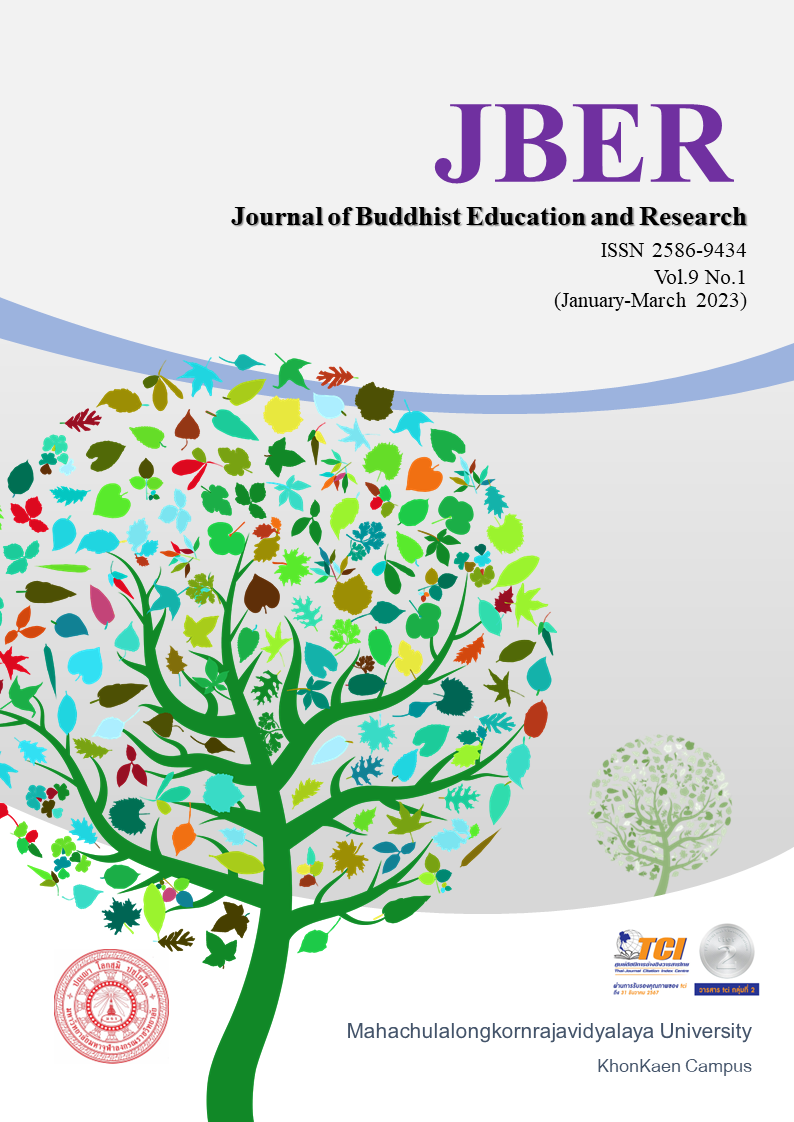THE CONTRIBUTION OF BUDDHIST COUNSELING FOR EMPOWERMENT IN SOCIAL WORK PRACTICE
Keywords:
Buddhist Ethics; Communication Skill, Social Workers.Abstract
The academic article aims to explain about Buddhist ethics in communication and the contribution of Buddhist ethics to improve the social worker’s communication skill. Communication can help individuals and groups to conduct a dialogue with one another effectively. Right speech is the noble way of communication that we maintain and avoid language that could evoke a defensive or aggressive reaction that we take care of four components: observations, feelings, needs, and requests. Different levels of communication that result in dialogue in different walks of social life are the basis of a democratic polity. Communication skill is one of the vital skills for all social workers. One path mentioned in the Eightfold Path is Right Speech or Sammavaca. It is the asset of outward communication or use in the case of addressing someone. The Buddha was aware of the power and function of speech in creating or losing such discursive power.
References
Adam McKenzie Hodgins.( 2010). Spiritual Empowerment Through Buddhist Practice. Wilfrid Laurier University, p.6, Accessed on 20 December 2022, Retrieved from https://scholars.wlu.ca/etd/
Ankaching Marma.(2017). Counseling and Its Importance: A Buddhist Perspective. Accessed on 15 December 2022, Retrieved from https://www.semanticscholar.org/author/Ankaching-Marma/118656666
British Association of Social Work.(2022). What do the social work do? Accessed on 15 December 2022, Retrieved from https://www.basw.co.uk/resources/become-social-worker/.
Gutierrez, L.M.(1995).Understanding the empowerment process: Does consciousness make a difference? Social Work Research, 19(4), 229-237.
Holly Martinez.(2022). What is Social Empowerment/Empowerment Theory. Accessed on 20 December 2022, Retrieved form https://unitedwaynca.org/blog/social-empowerment/.
Meena Charanda. (2019).Buddhist Approach to Global Leadership and Shared Responsibilities for Sustainable Societies. United Nation Day Of Visak, Fahasa Print: Ho Chi Minh City,229-240.
Peterson, N. A., Lowe, J. B., Aquilino, M. L., & Schneider, J. E. (2005). Linking social cohesion and gender to intrapersonal and interactional empowerment: Support and new implications for theory. Journal of Community Psychology, 33(2), 233-244.Accessed on 20 December 2022, Retrieved from https://psychology.iresearchnet.com/counseling-psychology/personality- traits/empowerment-counseling/
Phra Medeedhammapranat, and Phramaha Atidet Satiwaro.(2019). A Study of Buddhist Counseling Psychology Integrated Approach. Journal of MCU Nakhondhat 6(8),4041-4055.
R P C R Rajapakse(2017).Buddhism and Counseling"in Aryabhimani- Baragama ariyabodhi nahimi abinandana shasthriya lipi saraniya,ISBN-978-955-43581-2-6 ,358-376, Accessed on 15 December 2022, Retrieved from SSRN: https://ssrn.com/abstract=2937228
Rappaport, J. (1981). In praise of paradox: A social policy of empowerment over prevention. American Journal of Community Psychology, 9, 1-25.
Richards, P. S., & Bergin, A. E. (Eds.). (2000). Handbook of psychotherapy and religious diversity. Washington, DC: American Psychological Association. Accessed on 20 December 2022, Retrievedfromhttps://psychology.iresearchnet.com/counseling-psychology/personality-traits/religion-and-counseling/
Rinpoche, S. (1994). The Tibetan book of living and dying. New York: Harper Collins.
Sumedha Viraj Sripathi Ukwatta.(2019).The Application of Buddhist Teaching in Doing Counseling for Children. Buddhist Approach to Harmonious Family, Health Care, and Sustainable Society.United Nation Day of Visak 2019, p.21-38
Zimmerman, M. A. (1995). Psychological empowerment: Issues and illustrations. American Journal of Community Psychology, 23, 581-599.





